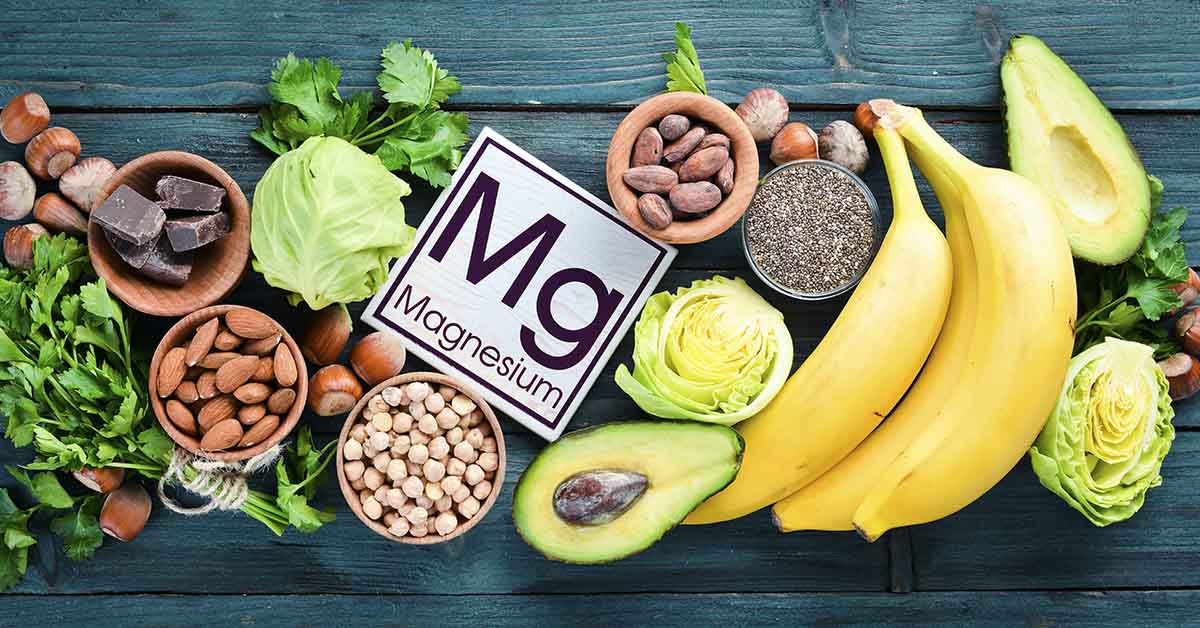Magnesium is a mineral that plays a large role in the body. In fact, over 300 chemical reactions rely on it to work. For instance, sufficient levels contribute to keeping a steady heart rate, balancing blood sugar levels, maintaining cartilage, and sending messages through the nervous system. It also aids the production of DNA, bones, and protein. However the body can’t produce this mineral on its own, so it’s important to eat a diet rich in magnesium-filled foods. Fortunately, there are many items to choose from, including vegetables, grains, and fish.
The Importance of Magnesium in the Diet
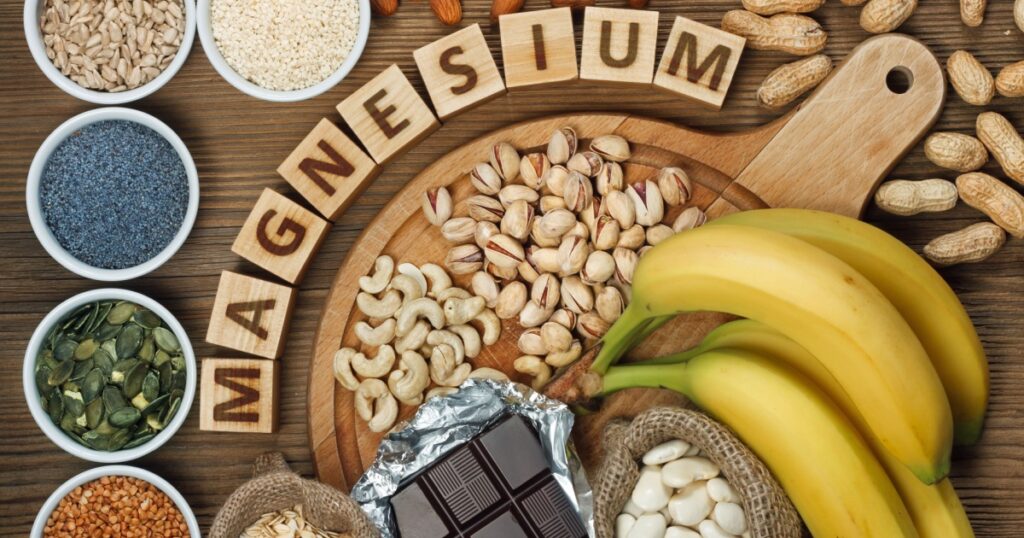
Given its critical role in the body, magnesium offers numerous health benefits. Studies suggest that a higher intake is associated with a reduced risk of type 2 diabetes, stroke, high blood pressure, and heart disease, though further research is needed to confirm this. Additionally, magnesium has been linked to better bone health and may help reduce the risk of osteoporosis and fractures. Preliminary research also indicates a potential link between supplementation and reduced migraine frequency, as well as relief from asthma attacks by relaxing muscle spasms. [1]
Read More: B vitamins could help treat severe nonalcoholic fatty liver disease
As a general rule

Adult men should consume 400–420 milligrams of magnesium daily, and women need 310 milligrams daily, or 350 if pregnant. Although it’s rare to have a deficiency, many Americans don’t consume as much as they should, only about 66% of their recommended amounts, and certain subgroups have been shown to be up to 80% deficient. This could be from eating a diet high in processed food. Being aware of which foods are naturally packed with this mineral could help ensure you are getting all your body needs. [2]
17 Foods Rich in Magnesium
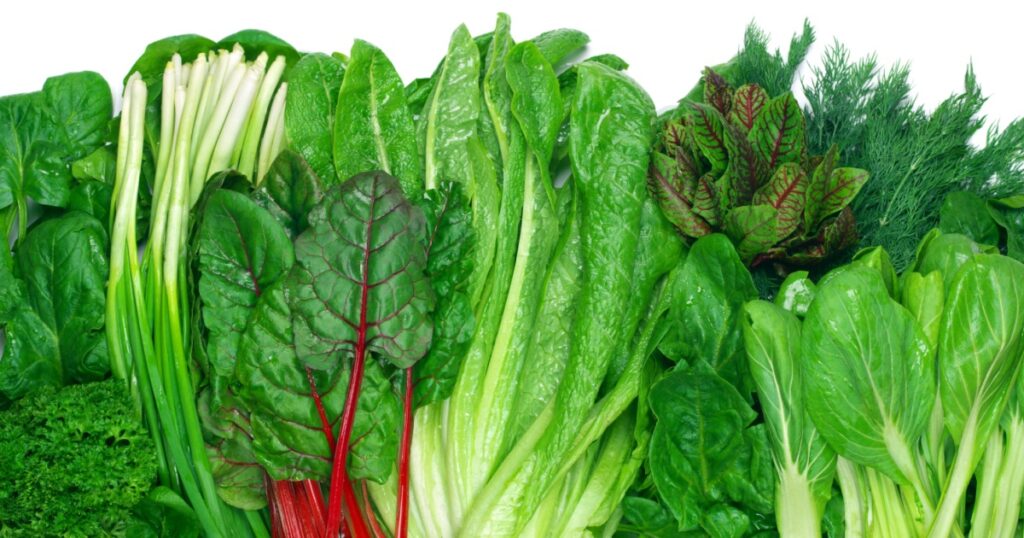
In this exploration, we’ll journey through a diverse array of foods abundant in magnesium, from vibrant leafy greens to savory nuts, each offering a delicious and nutritious way to boost your magnesium intake.
1. Leafy Greens
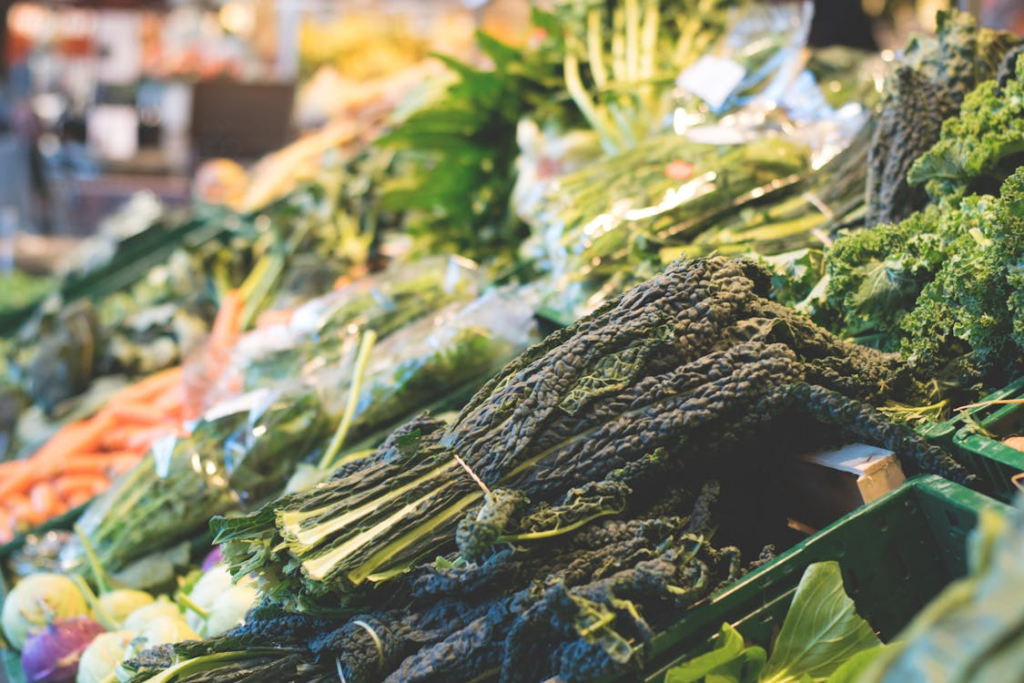
Indulge in the verdant goodness of dark leafy greens like spinach, kale, turnip greens, mustard greens, and Swiss chard. Packed with magnesium, these nutrient-dense greens contribute to healthy nerve function, muscle contraction, and energy production. Incorporate them into your meals for a delicious and nutritious boost to your magnesium intake.
2. Nuts For a Magnesium Boost
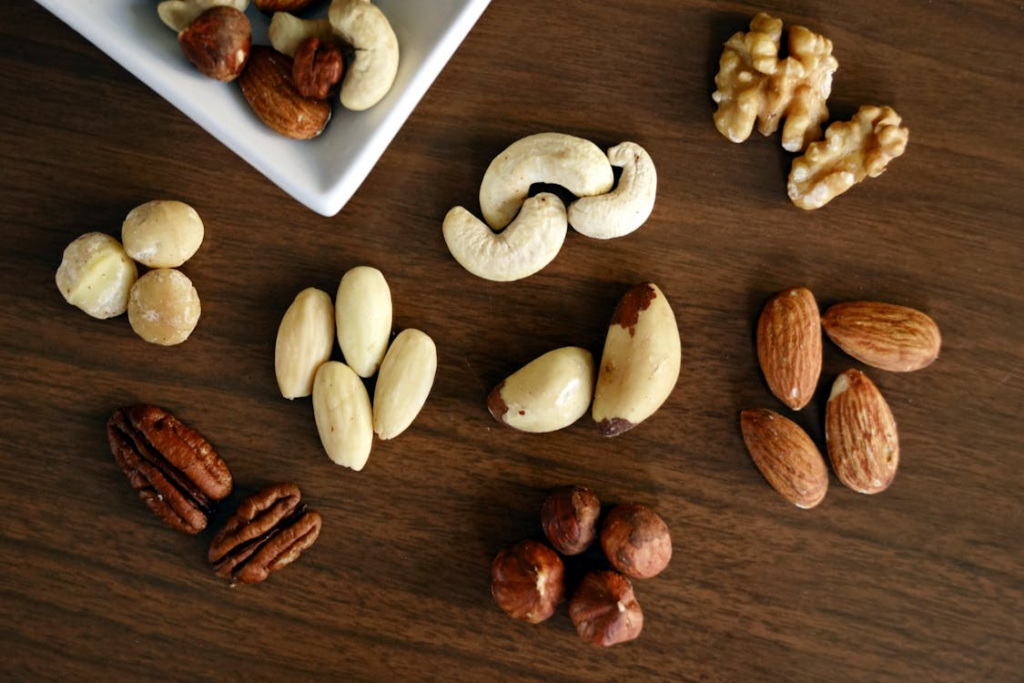
Treat yourself to the crunchy satisfaction of nuts like almonds, Brazil nuts, and cashews. Not only are they rich in healthy fats and protein, but they also contain magnesium, which plays a crucial role in over 300 biochemical reactions in the body. Snack on a handful of nuts to support your magnesium needs and enjoy their satisfying crunch.
3. Legumes
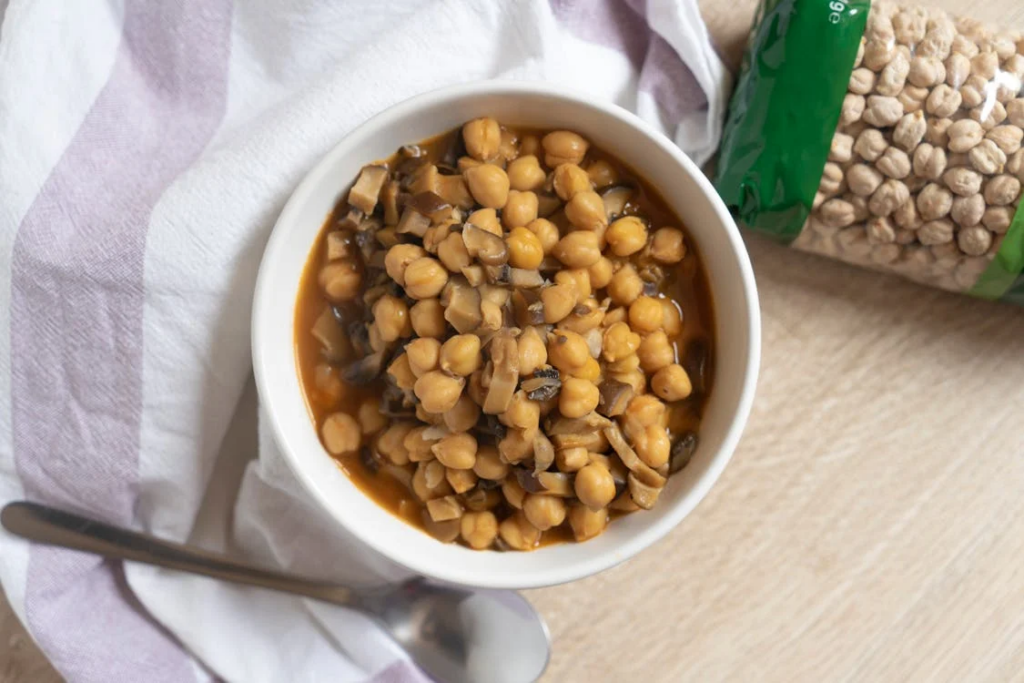
Embrace the legume life with chickpeas, black beans, peanuts, and black-eyed peas. Beyond their protein and fiber content, legumes are a fantastic source of magnesium, essential for maintaining optimal muscle and nerve function. Incorporate these legumes into your diet for a hearty and magnesium-rich meal.
Read More: 11 Signs You’re Not Getting Enough Magnesium and 20 Foods to Fix It
4. Fish

Dive into a seafood feast with salmon, halibut, albacore tuna, and Atlantic mackerel. Alongside their omega-3 fatty acids, these fish varieties boast magnesium content, crucial for supporting heart health and regulating blood pressure. Enjoy a delicious fish dish to reel in the benefits of magnesium and other essential nutrients.
5. Tofu and Soy

Savor the soy-based delights of tofu, soy nuts, and edamame, all rich in magnesium. As a plant-based source of protein, tofu and soy products provide a boost to support bone health and enzyme function. Add them to your stir-fries or salads for a tasty and magnesium-rich addition to your meals.
6. Seeds
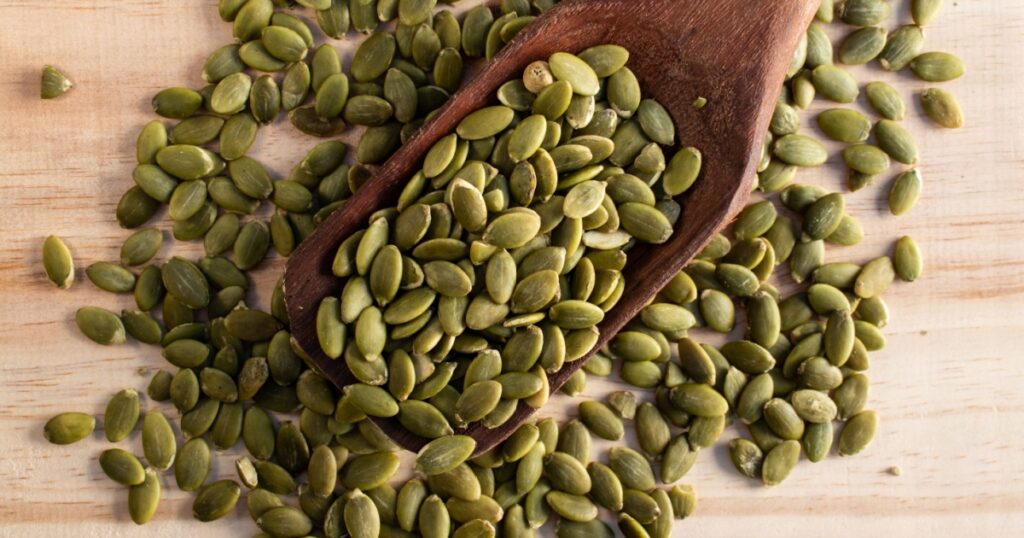
Elevate your snacks and meals with pumpkin seeds, flax seeds, and chia seeds, brimming with magnesium. These tiny yet mighty seeds are packed with essential nutrients, which plays a vital role in muscle and nerve function. Sprinkle them onto your yogurt or salads to increase your magnesium intake deliciously.
7. Avocado
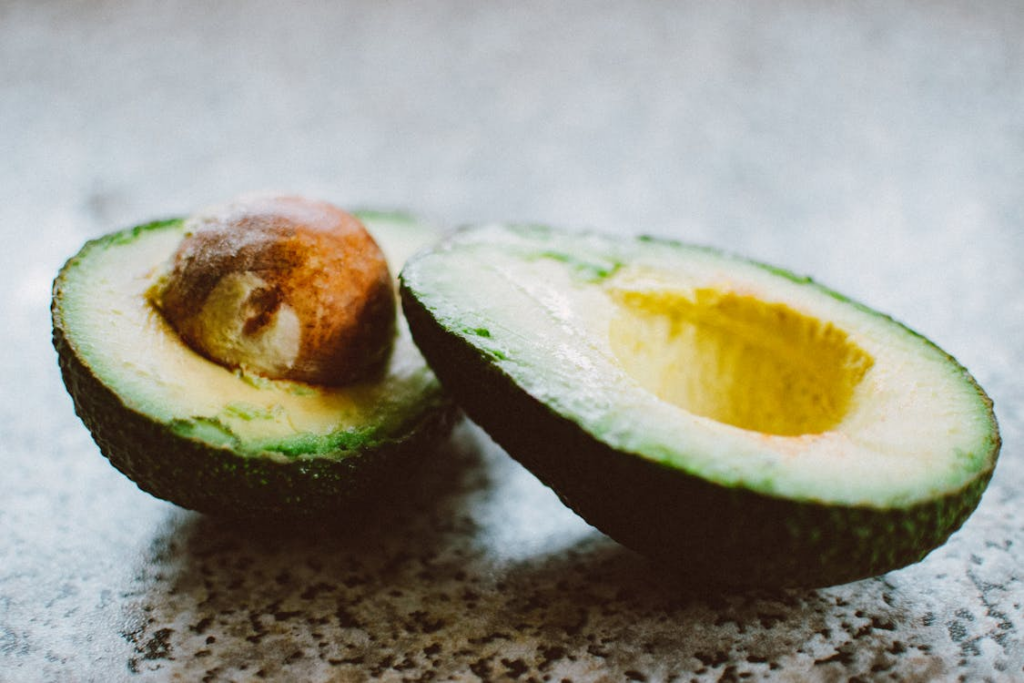
Delight in the creamy goodness of avocado, a delightful source of magnesium. Alongside its healthy fats and fiber, avocado contains magnesium, necessary for supporting nerve and muscle function. Incorporate this versatile fruit into your salads, sandwiches, or smoothies.
Read More: Take Magnesium To Relieve These 6 Health Conditions
8. Banana

Enjoy the natural sweetness of bananas while benefiting from their nutritional content. In addition to being a convenient and portable snack, bananas provide magnesium, essential for maintaining electrolyte balance and supporting muscle function. Grab a banana for a quick and magnesium-rich energy boost.
9. Dark Chocolate

Indulge your sweet tooth with dark chocolate, a decadent source of magnesium. Beyond its rich flavor, dark chocolate contains minerals crucial for promoting relaxation and supporting bone health. Treat yourself to a square or two of dark chocolate to satisfy your cravings and boost your intake.
10. Greek Yogurt

Savor the creamy goodness of Greek yogurt, packed with protein, probiotics, and magnesium. This versatile dairy product provides a convenient way to increase your intake while promoting gut health and muscle recovery. Enjoy Greek yogurt on its own or as a nutritious addition to smoothies and parfaits.
11. Whole Grains

Nourish your body with the wholesome goodness of oats, buckwheat, quinoa, and brown rice, all rich sources of magnesium. As part of a balanced diet, whole grains provide fiber, vitamins, and minerals, essential for energy production and muscle function. Incorporate these whole grains into your meals for a satisfying and magnesium-rich dining experience.
12. Potatoes
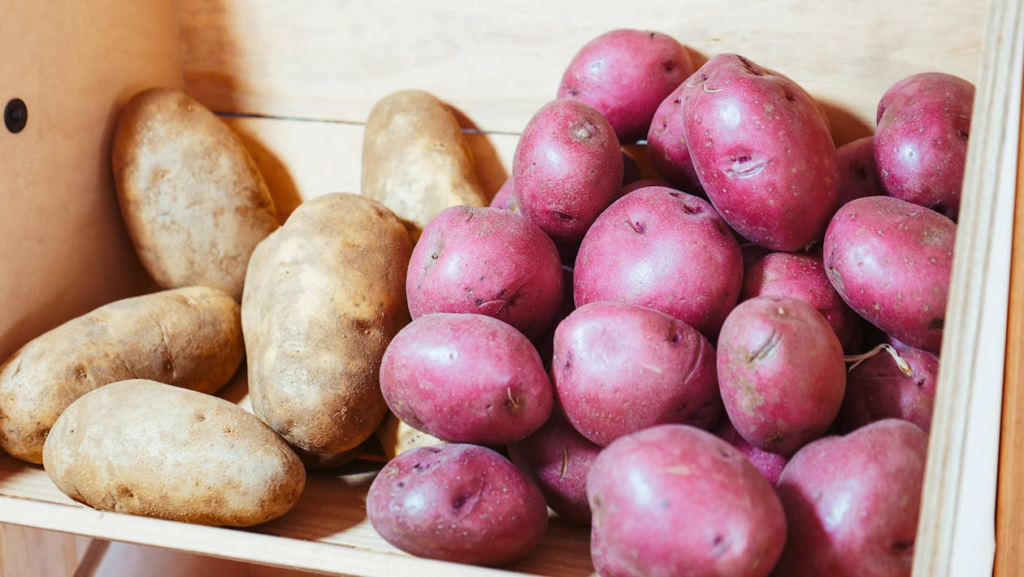
Savor the comforting goodness of potatoes while benefiting from their nutrional content. In addition to being a versatile staple, potatoes provide magnesium, crucial for supporting nerve and muscle function. Whether baked, mashed, or roasted, potatoes offer a delicious addition to any meal.
13. Okra

Explore the unique flavor and texture of okra while benefiting from its vitamin content. In addition to being rich in fiber and antioxidants, okra contains magnesium, essential for maintaining heart health and regulating blood sugar levels. Incorporate okra into your soups, stews, or stir-fries for a tasty and magnesium-rich dish.
Read More: Should Vitamin D and Magnesium Be Taken Together?
14. Broccoli
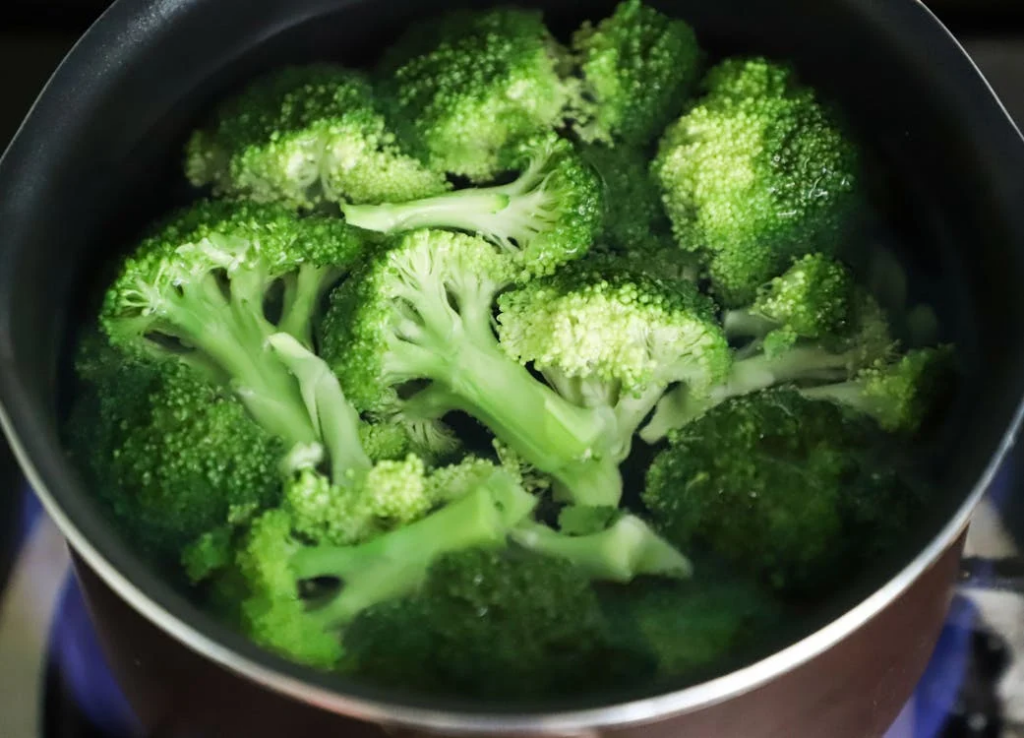
Celebrate the vibrant goodness of broccoli, a nutrient-dense source. Alongside its vitamins and antioxidants, broccoli provides magnesium, which is necessary for supporting bone health and muscle function. Enjoy broccoli steamed, roasted, or stir-fried for a delicious and magnesium-rich addition to your meals.
15. Prickly Pear

Discover the exotic allure of prickly pears while benefiting from their magnesium content. In addition to their refreshing flavor, prickly pears contain magnesium, essential for nerve and muscle function. Incorporate prickly pears into your smoothies, salads, or desserts for a tasty, delicious treat.
16. Raisins

Indulge in the natural sweetness of raisins while benefiting from their nutritional content. In addition to being a convenient and portable snack, raisins provide magnesium, essential for energy metabolism and muscle function. Enjoy raisins on their own or mixed into trail mixes and baked goods for a delicious and magnesium-rich treat.
17. Chicken Breast

Savor the lean protein of chicken breast while benefiting from its magnesium content. In addition to being a versatile ingredient, chicken breast provides magnesium, crucial for supporting nerve and muscle function. Whether grilled, baked, or sautéed, chicken breast offers a delicious addition to any meal.
Read More: Warning: 4 Common Vitamins Can Become Toxic If You Take Too Much
Should you take supplements?

The kidneys filter out excess magnesium in the body, so it’s rare for people to experience adverse effects from eating too many foods with this mineral. However, it is possible to consume too much by taking supplements. Don’t take more than the required dosage or what your healthcare practitioner recommends, since too much can lead to nausea, abdominal pain, and diarrhea. Extremely high amounts can cause an irregular heartbeat and even a heart attack. Therefore, it’s not generally recommended for people to take supplements if they have kidney failure, heart block, bowel obstruction, and myasthenia gravis unless otherwise recommended by their doctors.
Additionally…

There are certain conditions that can cause chronic magnesium deficiency, including type 2 diabetes, alcoholism, chronic diarrhea, Crohn’s disease, and celiac disease. Deficiency often leads to symptoms such as fatigue, nausea, loss of appetite, and vomiting. The recommended dosage varies depending on each person. Food is always the best source for vitamins and minerals, but people could discuss with their healthcare practitioner whether taking supplements would benefit them and what dosage is safe. [5]
Read More: Does High Intake of Vitamins B6 and 12 Increase Hip Fracture Risk?
Sources
- “Magnesium and Your Health.” WebMD. Danny Bonvissuto. December 17, 2022.
- “Magnesium: Fact Sheet for Health Professionals.” National Institute of Health. June 2, 2022
- “10 Magnesium-Rich Foods That Are Super Healthy.” Healthline. Franziska Spritzler. October 14, 2022
- “Magnesium Rich Food.” Cleveland Clinic. November 24, 2020
- “Ten foods high in magnesium.” Medical News Today. Rena Goldman. July 26, 2017
